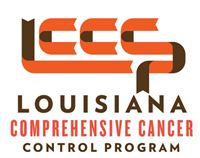15 Reasons Why Anyone Can Get Colorectal Cancer

March is Colorectal Cancer Awareness Month, which is a good time to let people know about some research from the National Colorectal Cancer Roundtable (NCCRT). It shows people 50 and over know they should get screened for colorectal cancer, yet it also shows they are letting bad reasons stand in the way of actually doing so.
The NCCRT, which was established by the American Cancer Society and the Centers for Disease Control and Prevention to reduce colorectal cancer incidence and mortality, has categorized people who are not getting screened as:“Procrastinator/ Rationalizers,” “Newly Insured,” and “Financially Challenged,” with the problem being magnified among African Americans and Hispanics who fall in those groups. Characteristics include:
1) Rationalized Avoidance. People know they should get screened, but don’t acknowledge its importance and rationalize why they don’t need it. Call it the “could-have, should-have, would-have” group.
2) Lack of Affordability. Not surprisingly, it’s the number one reason people don’t get screened. More surprising is the fact that people don’t seem to know that under the Affordable Care Act, preventive screenings, such as colonscopies, are covered by insurance.
3) No Symptoms or Family History. Do you really want to wait until you are bleeding from your behind to find out you have colorectal cancer? Symptoms often mean a more advanced stage of the disease. And not having a family history of the disease does not confer magical protection against colorectal cancer.
4) Negative Connotation. People often think of colorectal cancer screening as invasive, unpleasant or embarrassing. That’s how many women used to think of breast cancer screening too, and, guess what? They also died at much higher rates. It’s time for people to stop “dying from embarrassment” and realize that getting cancer is a lot more invasive and unpleasant than any kind of screening.
5) No Doctor Recommendation. Doctors need to step up to the plate. African Americans cite the lack of a screening recommendation as the number one reason they do not get them, while Hispanics rank it as the number three reason. That said, people also need to speak up for themselves and talk to their doctors about colorectal cancer screenings.
6) No Personal Connection. It seems people who have not had a close friend or family member with cancer, or are unaware of their family histories of cancer, tend to think they can’t get it. People are wrong.
7) Low Levels of Healthy Behavior. Interestingly, there are people who identify themselves as healthy, but don’t live that way, go to the doctor or talk to their doctor about screenings. You can’t just talk the talk – you have to walk the walk.
Colorectal cancer also has risk factors that increase chances for getting the disease, some of which can be controlled and others that can’t. Controllable factors are:
8) Red and Processed Meats. Sorry, folks, but if your diet includes a lot beef, pork, lamb, liver, hot dogs and certain kinds of luncheon meats, you’re upping your chances for getting colorectal cancer (and a number of other ailments). Cooking meat at very high temperatures may also increase risk.
9) Physical Activity. Exercise is good for almost anything that ails us.
10) Obesity. If you’re obese, your risk goes up – especially if you’re a man.
11) Smoking. Everyone knows it causes lung cancer. It’s linked to colorectal cancer too, as well as a list of diseases too numerous to list.
12) Alcohol. Keep use moderate. Men should have no more than two drinks a day; women no more than one, to be healthy overall.
And then there are the factors you can’t control:
13) Age. That is why you start getting regular colorectal cancer screenings at 50.
14) Racial/Ethnic Background. African Americans have the highest colorectal cancer incidence and mortality rates in the United States. According to The Louisiana Comprehensive Cancer Control Program, recent research is showing that the Cajuns of south Louisiana also have some of the highest incidence rates in the country – probably due to genetic factors.
15) Other Diseases. If you have Type 2 Diabetes, a Personal/Family History of Polyps, Colorectal Cancer; Inflammatory Bowel Disease; or Inherited Syndromes (FAP, HNPCC, Turcot Sydrome, Peutz-Jeghers Syndrome, MUTYH-Associated Polyposis), you have a higher risk of colorectal cancer.
Colorectal cancer is the second leading cause of cancer deaths in the United States, when you look at men and women combined, with people having a 1 in 20 risk of developing the disease at some point. There is no reason for these deaths as colorectal cancer is preventable, thanks to screenings. What’s more, people have a choice among a number of screening types, ranging from in-hospital procedures to take-home tests. That is why everyone needs to talk to their doctor and decide what is best for them. Remember “the best test is the one you’re going to get.”
To learn more about colorectal cancer, go to the Louisiana Comprehensive Cancer Control Program at lcccp.org/colorectal/.
Tags:



